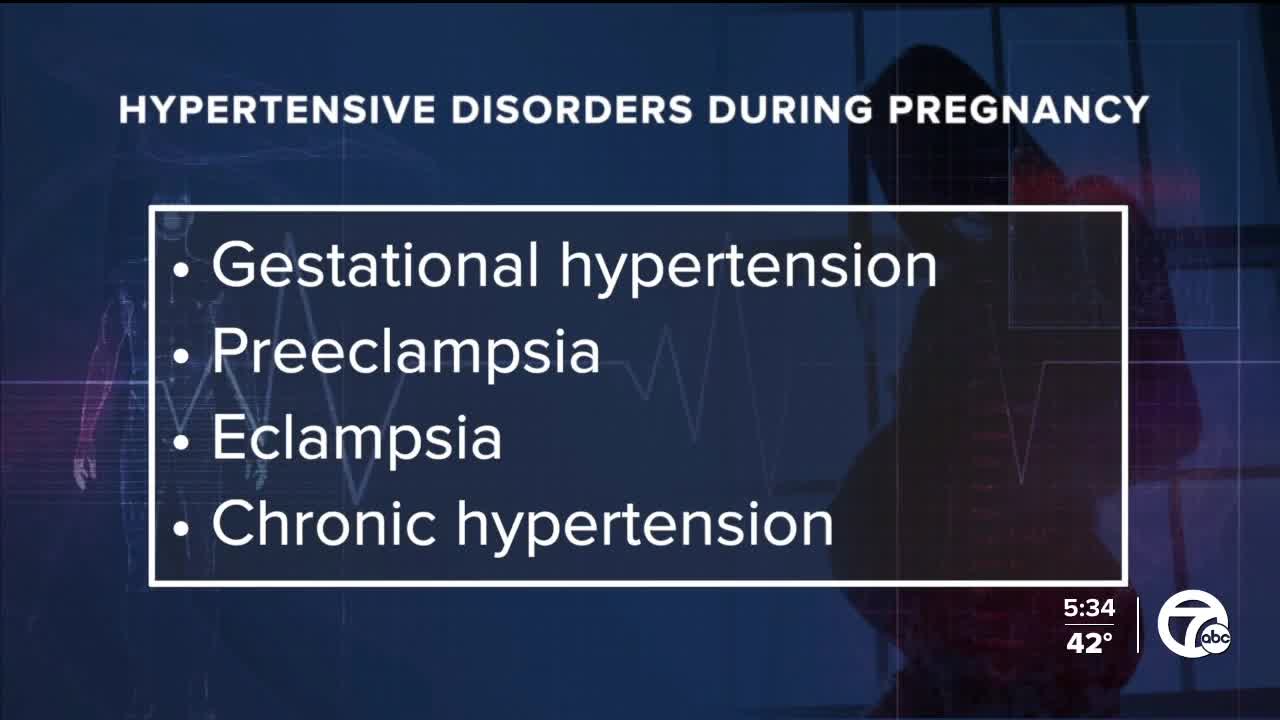SOUTHFIELD, Mich. (WXYZ) — Hypertensive disorders during pregnancy are on the rise. That's why the U.S. Preventive Services Task Force is expanding its recommendations.
The disorder can lead to serious complications, even death. Between 2017 and 2019, data shows that hypertensive disorders affected at least 1 in 7 deliveries in the hospital. And among those who died while giving birth, roughly 1 in 3 had a hypertensive disorder while pregnant.
There are many hypertensive disorders that can happen during pregnancy. They include the following:
- gestational hypertension – that’s when high blood pressure develops during pregnancy, typically after the 20th week.
- also, preeclampsia – this is when a pregnant person experiences high blood pressure, protein in their urine, severe headaches, swelling, and blurred vision.
- another disorder is eclampsia – this is a severe complication of preeclampsia that results in seizures.
- in addition, screening would include chronic hypertension with and without superimposed preeclampsia. The word chronic means that a person had high blood pressure before getting pregnant. And superimposed preeclampsia means that a person’s blood pressure worsens during pregnancy, which can lead to the preeclampsia symptoms I mentioned earlier, like protein in the urine.
If blood pressure is not controlled during pregnancy, it can lead to complications like organ damage, retinal detachment, stroke, seizures, preterm birth, and stillbirth. The newborn baby may have a low birth weight and restricted growth.
As for risk factors, these include being 35 years of age or older, having gestational diabetes or chronic hypertension, being overweight prior to pregnancy, as well as a family history of preeclampsia or a previous adverse pregnancy outcome.
In addition, Black women, American Indian, and Alaska Native women face higher risks of developing hypertensive disorders.
The good news is that these disorders during pregnancy can be managed. That’s why it’s so important to have regular prenatal visits. It allows healthcare providers to monitor blood pressure and intervene with treatments if needed to reduce complications and deaths.




